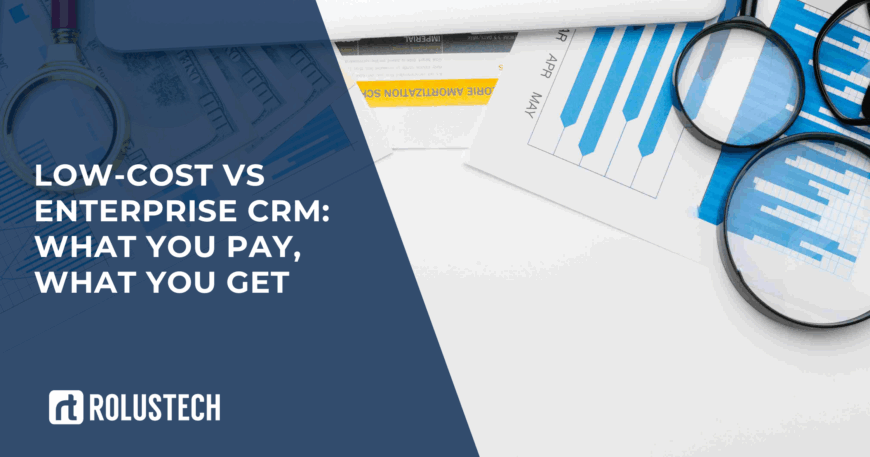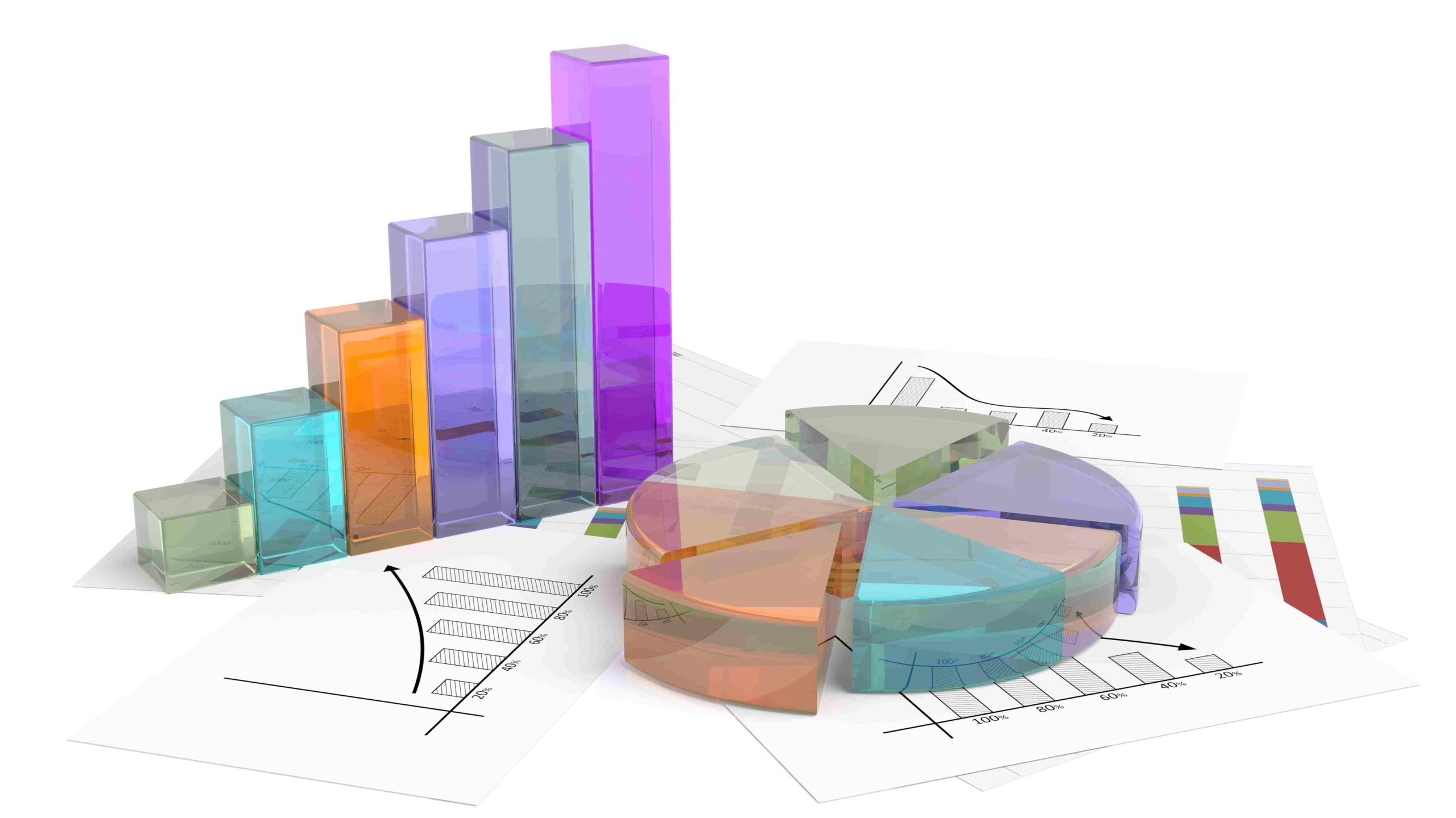Choosing the right CRM comes down to one key factor crm pricing. Some solutions look affordable at first. Others seem expensive but deliver immense value. The real question is: what are you paying for, and what do you get?
This blog will break down the difference between low-cost CRM and enterprise CRM. We’ll explore real pricing, value trade-offs, hidden costs, and how Rolustech helps. By the end, you’ll know which option fits your business growth stage.
What Is a Low-Cost CRM?
A low-cost CRM is designed for startups and small businesses. It focuses on essential features: contacts, deals, tasks, and basic reporting. The goal is affordability with minimum barriers to entry.
Low-cost CRMs typically charge between $10 and $30 per user per month. They may even provide free versions with limited capabilities. However, beyond the surface, restrictions begin to appear quickly.
For example, integrations may be limited, and automation is often basic. Support is typically minimal, with additional charges for premium assistance. As a result, businesses may outgrow these tools sooner than expected.
What Is an Enterprise CRM?
An enterprise CRM is built for large organizations with complex needs. It supports multiple departments, large datasets, advanced automation, and integrations. Scalability is at the heart of these systems.
Enterprise CRMs typically cost between $65 and $135 per user per month. While pricing is higher, the value includes advanced customization and AI features. These systems also provide stronger security, compliance, and 24/7 support.
At Rolustech, we specialize in platforms like Salesforce, SugarCRM, and Microsoft Dynamics. These tools define the enterprise category with proven scalability and depth.
Components of CRM Pricing
To understand crm pricing, you need to look beyond user licenses. Here are the main cost elements businesses face:
- License fees: Charged per user, per month, or annually
- Implementation: Setup, customization, integrations, data migration
- Support: Standard vs premium or SLA-based services
- Storage & data limits: Extra charges if usage exceeds allowance
- Upgrades & add-ons: AI modules, analytics, automation, or connectors
- Training & adoption: Costs to onboard employees effectively
At Rolustech, we help businesses estimate the total cost of ownership. That means no surprises later with hidden fees or overlooked services.
CRM Pricing: Real Examples
Let’s examine the real public pricing ranges of leading CRM systems. These platforms are part of Rolustech’s expertise, so we are familiar with them inside and out.
- Salesforce: Entry suite starts around $25/user/month. Advanced editions go higher.
- SugarCRM: The Advanced tier costs approximately $85/user/month. Premium tiers climb to $135/user/month.
- Microsoft Dynamics 365: Professional plans begin at $50–$65/user/month. Enterprise modules reach $105/user/month.
- X2CRM: Open-source at base, but paid services for customization and hosting.
These numbers represent base license fees only. Actual project costs depend on implementation, integrations, and scale.
Low-Cost CRM: What You Pay, What You Get
When you buy a low-cost CRM, here’s what you usually get:
- Contact and pipeline management
- Basic reports and dashboards
- Simple integrations (usually limited to email and calendar)
- Freemium or budget pricing
- Community support or basic ticketing
The upside is affordability. You can get started with as little as a few dollars per month. This makes sense for startups validating their sales processes. The downside is scalability. When your business expands, these tools struggle to keep pace. Migration or upgrades may ultimately cost you more.
Enterprise CRM: What You Pay, What You Get
With enterprise CRM, the costs are higher, but the value is also higher. You’re not just buying software; you’re buying scale and flexibility.
What you get includes:
- Advanced workflow automation
- Custom dashboards and analytics
- Multi-department functionality (sales, service, marketing, operations)
- AI-powered insights and predictions
- Stronger security and compliance
- Dedicated support and SLAs
These features make enterprise CRMs suitable for global operations. They help businesses unify teams, improve collaboration, and maximize customer relationships. Rolustech’s Salesforce Services and Dynamics Services enable exactly that.
Hidden Costs in CRM Pricing
Even with clear licensing, crm pricing includes hidden layers. Businesses often overlook these until implementation begins.
Some examples include:
- Data migration: Moving data from legacy systems
- Customization: Tailoring CRM to business processes
- Training: Teaching teams how to adopt new workflows
- Third-party integrations: Connecting with ERP, marketing, or payment systems
- Storage fees: Paying extra for large datasets or media files
At Rolustech, we identify these costs early. That ensures you plan a realistic CRM budget from day one.
Cost Comparison: Startup vs Enterprise
Startup Scenario (5 users)
- Low-cost CRM at $20 per user = $100/month
- No heavy customization or integrations
- Annual spend: $1,200
Growth Scenario (20 users)
- SugarCRM Advanced at $85 per user = $1,700/month
- Add customization, integrations, and training
- Annual spend: $25,000+
Enterprise Scenario (100 users)
- Dynamics Enterprise at $105 per user = $10,500/month
- Add AI, advanced automation, and premium support
- Annual spend: $150,000+
These examples highlight how CRM pricing scales with business complexity.
When to Choose Low-Cost CRM
Low-cost CRM is ideal if:
- You’re a startup or small team
- Your processes are simple and evolving
- You need affordability above all
- You’re okay with limited customization
- You want to test CRM adoption first
Rolustech often recommends X2CRM or lightweight SugarCRM setups here. They offer a balance between affordability and future scalability.
When to Choose Enterprise CRM
Enterprise CRM is right if:
- You manage multiple teams or departments
- You need AI, automation, and advanced analytics
- Compliance and security are priorities
- You expect to scale rapidly
- You want long-term stability and vendor support
Our Salesforce, Dynamics, and SugarCRM solutions cover this spectrum. They enable enterprises to operate within a single, centralized CRM ecosystem.
How Rolustech Helps
Rolustech is a full-service CRM partner with 15+ years of expertise. We specialize in Salesforce, SugarCRM, Microsoft Dynamics, and X2CRM.
Our services include:
- CRM consultation and vendor selection
- Licensing and cost modeling
- Customization and integration
- Data migration and onboarding
- AI, automation, and reporting solutions
- Long-term support and scaling
By partnering with Rolustech, you don’t just buy licenses. You gain a trusted team that helps maximize ROI from your CRM.
Conclusion
The debate between low-cost and enterprise CRM is not about cheap versus expensive. It’s about value at the right stage of business growth. Low-cost CRMs help startups save money and get started quickly. Enterprise CRMs deliver scale, security, and automation for complex organizations.
At Rolustech, we guide businesses through both choices. With expertise across Salesforce, SugarCRM, Dynamics, and X2CRM, we ensure you pay for what you truly need. The right CRM is not just about pricing, it’s about growth, scalability, and long-term value.
FAQs
What’s the cheapest CRM option?
Low-cost CRMs, such as X2CRM or entry-level SugarCRM tiers, are budget-friendly.
Do enterprise CRMs always cost more?
Yes, but they deliver advanced features, AI, and scalability that justify the price.
Can I start with a low-cost option and switch later?
Yes, but migrations can be complex. Rolustech helps with smooth transitions.
Which enterprise CRM has the best ROI?
It depends on needs. Salesforce offers depth, Dynamics is strong in integrations, and SugarCRM is flexible.
How does Rolustech support budgeting?
We provide detailed cost breakdowns, covering licenses, hidden fees, and long-term TCO.







